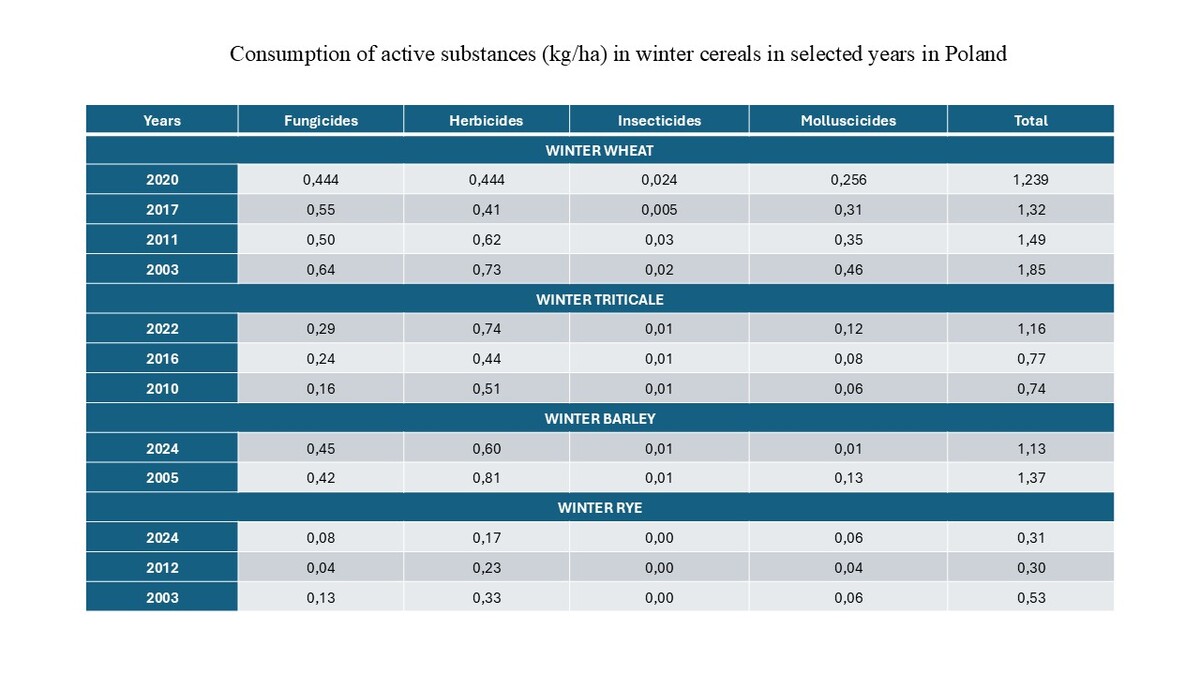REVIEW
Availability Constraints of Plant Protection Products in Polish Winter Cereal Production – A Post-EU Accession Perspective
1
Department of Entomology and Agricultural Pests, Institute of Plant Protection - National Research Institute, Węgorka 20, 60-318, Poznań, Poland
2
Department of Weed Science and Plant Protection Techniques, Institute of Plant Protection - National Research Institute, Węgorka 20, 60-318, Poznań, Poland
A - Research concept and design; B - Collection and/or assembly of data; C - Data analysis and interpretation; D - Writing the article; E - Critical revision of the article; F - Final approval of article
Submission date: 2025-06-04
Acceptance date: 2025-08-04
Online publication date: 2025-08-18
Corresponding author
Przemysław Strażyński
Department of Entomology and Agricultural Pests, Institute of Plant Protection - National Research Institute, Węgorka 20, 60-318, Poznań, Poland
Department of Entomology and Agricultural Pests, Institute of Plant Protection - National Research Institute, Węgorka 20, 60-318, Poznań, Poland
HIGHLIGHTS
- Withdrawal of active substances causes problems with the protection of winter cereals
- There is a need to develop and improve alternative protection solutions
- The risk of illegal use of plant protection products is increasing
- Further restrictions on active ingredients may increase the risk of pest resistance
KEYWORDS
EU pesticide regulationcrop protection policyagronomics constraintsintegrated pest managementcereal sustainability
TOPICS
ABSTRACT
Due to their extensive cultivation and the significant impact of pests causing economically relevant losses, winter cereal crops require effective chemical protection. A major challenge in their protection is the steadily diminishing range of available plant protection products (PPPs), specifically the active substances (AS) they contain. Although the core principles of the European Green Deal have been temporarily suspended, the European Commission has continued to phase out several active substances. As a result, dozens of these substances have been withdrawn from the market in recent years, creating increasing difficulties in crop protection - particularly for winter cereals. This is partly due to the growing resistance of pests, stemming from reduced opportunities for rotating products with different mechanisms of action. Further reductions in active substances, in the absence of viable alternative methods for agrophage control, may potentially lead to a decrease in both the cultivated area and overall production volumes for economic reasons. Moreover, such a scenario increases the risk of illegal imports or off-label use of plant protection products (PPP).
CONFLICT OF INTEREST
The authors have declared that no conflict of interests exist.
Share
RELATED ARTICLE
We process personal data collected when visiting the website. The function of obtaining information about users and their behavior is carried out by voluntarily entered information in forms and saving cookies in end devices. Data, including cookies, are used to provide services, improve the user experience and to analyze the traffic in accordance with the Privacy policy. Data are also collected and processed by Google Analytics tool (more).
You can change cookies settings in your browser. Restricted use of cookies in the browser configuration may affect some functionalities of the website.
You can change cookies settings in your browser. Restricted use of cookies in the browser configuration may affect some functionalities of the website.




